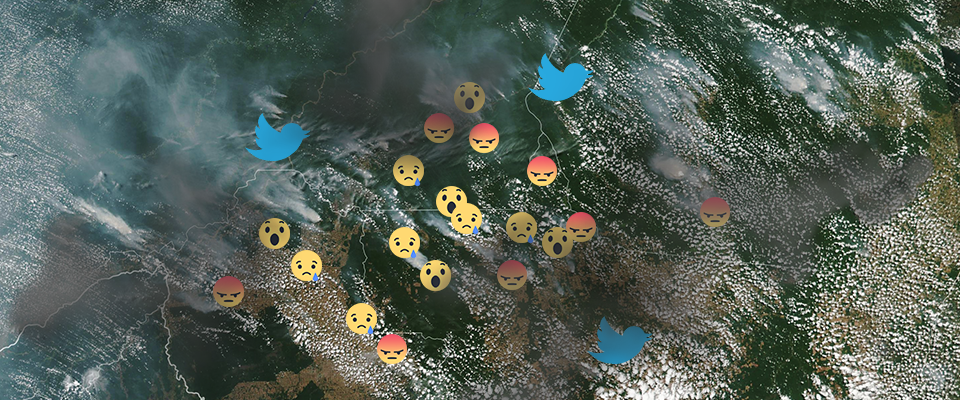Meteorologist and environmental journalist Eric Holthaus made international news last fall when he announced to his then-13,000 Twitter followers that the latest (and dire) reports from the International Panel on Climate Change made him do two things: vow to forego flying, and sob.
“I just broke down in tears in (the) boarding area at SFO while on my phone with my wife,” Holthaus tweeted. “I never cried because of a science report before…I realized, just now: This has to be the last flight I ever take. I’m committing right now to stop flying…We have to do everything we can, every day to reverse CO2 emissions. There is no other way that makes sense.”
The IPCC report was indeed sobering, deeming it “extremely likely” that anthropogenic activity was driving climate change, and that our carbon-spewing industrial civilization “…has warmed the ocean, melted snow and ice, raised global mean sea level and changed some climate extremes in the second half of the 20th century…” Read between the lines on that and you get liquefying ice caps at the poles, rising sea levels submerging Miami and Bangladesh, multi-decade droughts in California and sub-Saharan Africa, oceans so acidic from CO2 absorption that oysters would have a hell of a time keeping their shells intact—it just goes on and on.
By using a carbon footprint calculator developed at UC Berkeley, Holthaus determined that his frequent business air trips contributed almost half of his family’s atmospheric carbon burden, and that by eschewing flying he could cut his household emissions from twice the American average to about one-third the average.
His response engendered both plaudits and derision. Fellow researchers—along with a passel of his Twitter followers—congratulated him on a stance grounded in both science and heartfelt emotion. Folks of a conservative political bent, predictably, lambasted him:
“I’m calling BS on this drama queen,” said Fox News commentator Greg Gutfeld. “This is what dooms environmentalism—dishonest hysterics who put drama before data.”
And now, six months later? The meteorologist says he’s kept to his pledge. He hasn’t stepped foot on an airplane since he tweeted at SFO, and insists he has no intention of doing so.
“My wife and I just completed a road trip to California,” says Holthaus, who lives in Wisconsin. “I’m working on some pieces on the drought and Central Valley agriculture, and we also stopped off to visit some friends in Colorado, the Southwest, and Oregon. The amount of carbon we generated by driving from our home in Wisconsin and back was considerably less than if we had flown and rented cars.”
How much less? Once again, Holthaus used Cal’s carbon calculator to determine the specifics.
“The amount of carbon needed to transport two people by air and rental car to all the places we went would’ve amounted to 6.84 tons,” he says. “Driving the whole thing in our Honda Civic produced about 2.5 tons. So by driving, we reduced our carbon footprint by about 65 percent.”
Of course, 2.5 tons is still a lot of carbon. Holthaus acknowledges as much.
“To be completely efficient, you’d stay home,” he says. “And when there was all that coverage about my tweets, there were quite a few people who suggested that if I was really worried about carbon emissions, I’d just kill myself. And yes, if I did that, my carbon contribution would be zero. But the goal is to live as normal a life as possible while minimizing your carbon footprint, not suicide or never leaving your house. I have to work like everyone else, and I had work to do in California. And like everyone else, my wife and I want to enjoy life and visit friends. But we want to do it in the most responsible way possible.”
Holthaus emphasizes that his approach isn’t about promoting a tree-hugging ethos—completely, anyway.
“It’s as much about self-interest as altruism,” he says. “Climate change could easily threaten the stability of civilization and the ecological capacities of the planet. We risk starvation for much of the world and food price shocks for the rest, massive population displacement from sea level rise and drought, wars from competition for dwindling resources. These aren’t problems that will be restricted to the developing world. They’re going to hit us as well.”
Nor is he optimistic that any technological fix, extant or in the offing, will make everything better.
“I think some people, even people who are deeply familiar with the issue, are putting too much hope on technology pulling us out of this,” Holthaus contends. “It’s true that technology has to be a major part of the solution. If we switched completely to solar and wind from fossil fuels, we’d maybe be 70 percent there. But to really get a handle on it, there’s going to have to be a major shift in thinking and social priorities. We’re going to have to address this on every level, and for a very long time.”
Which—given human nature—could lead one to conclude we are utterly doomed. Yet Holthaus insists otherwise.
“I’m only 33, but I’ve already seen evidence that entire societies can change their thinking and priorities,” he says, “and it can happen very quickly. Gay marriage is a prime example. Ten years ago, most people in the U.S. were adamantly opposed to it. That number has now fallen to a very small, vocal minority. Most people, of all political affiliations, now accept gay marriage as a given. It’s no big deal. And we’re starting to see things shift over climate change. The rabid climate change deniers have dwindled in the last couple of years. The argument now isn’t over whether it exists—it’s whether it matters. And that’s actually a major improvement. I still bounce between despair and moderate optimism. But I think you have to remain hopeful. Otherwise, you won’t be able to function.”



















